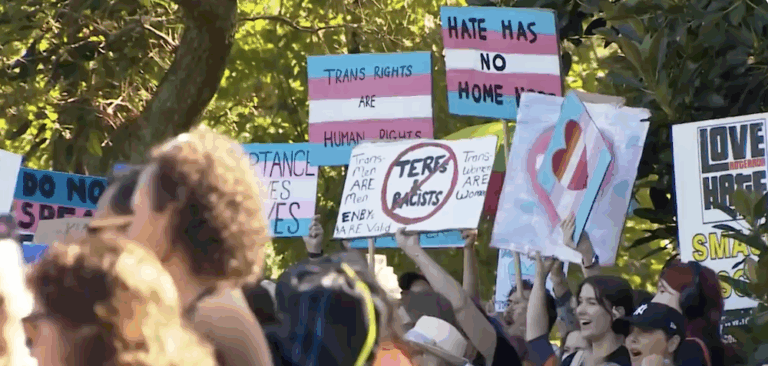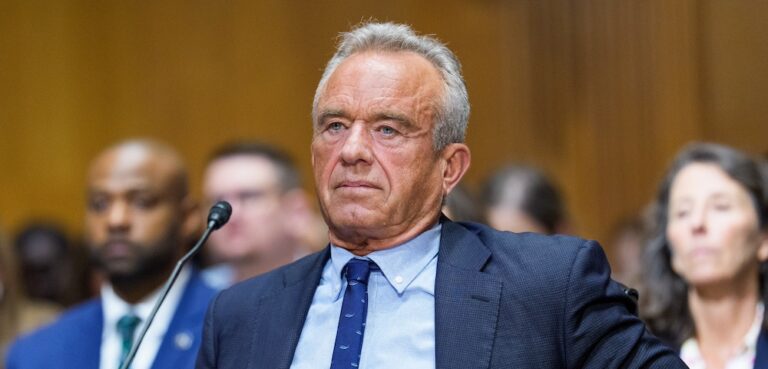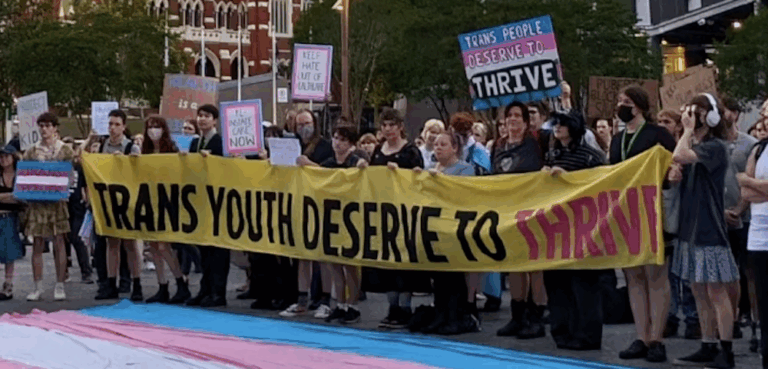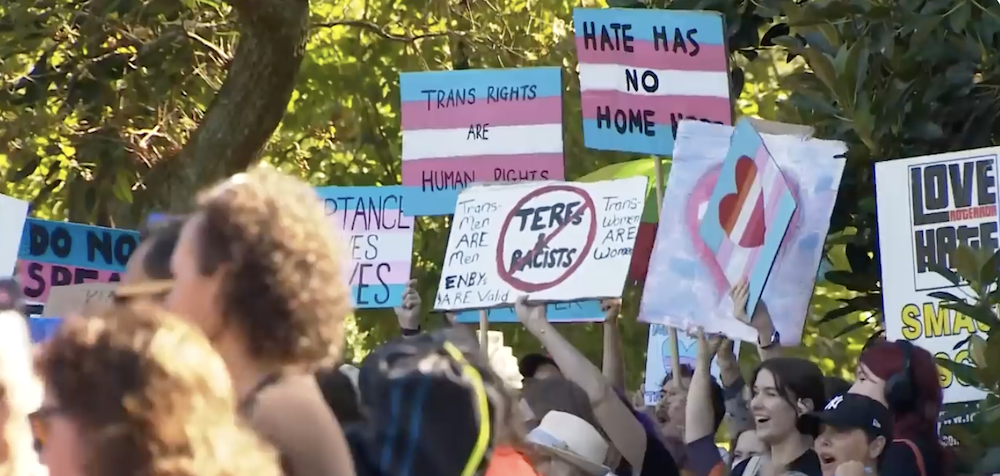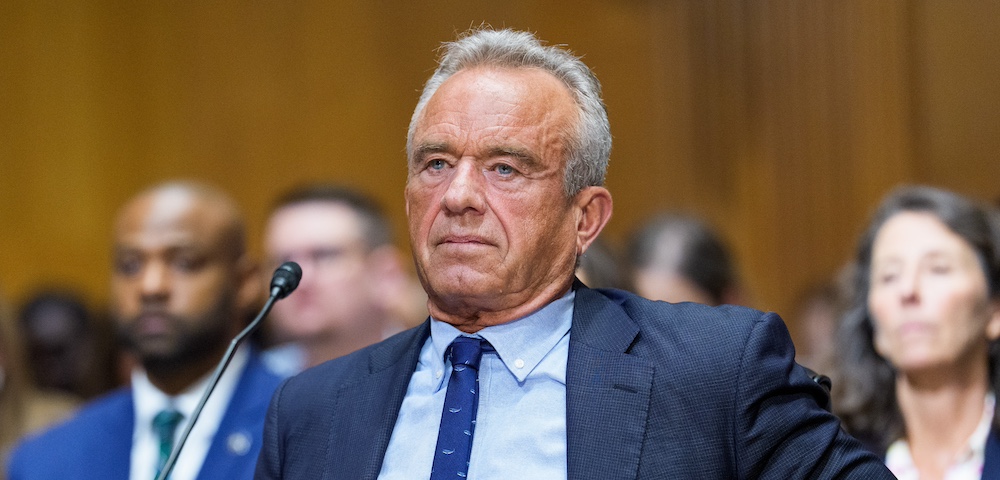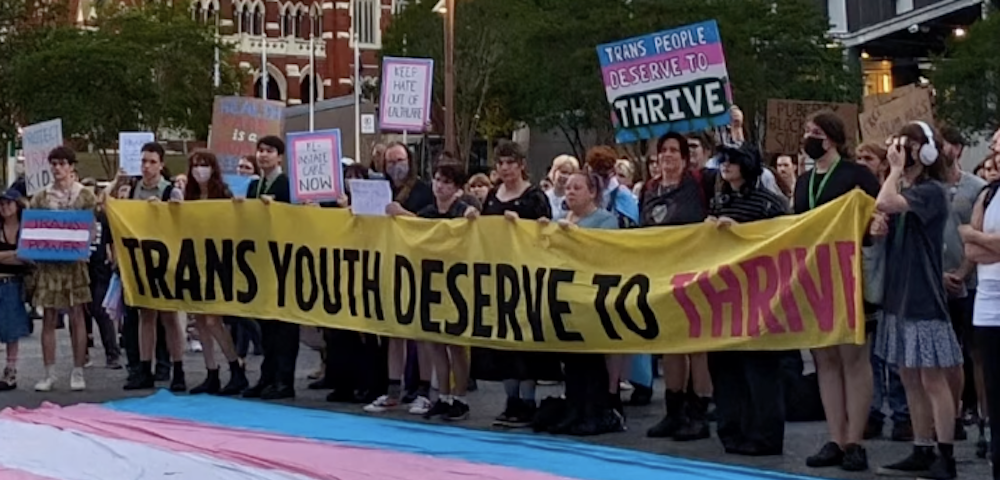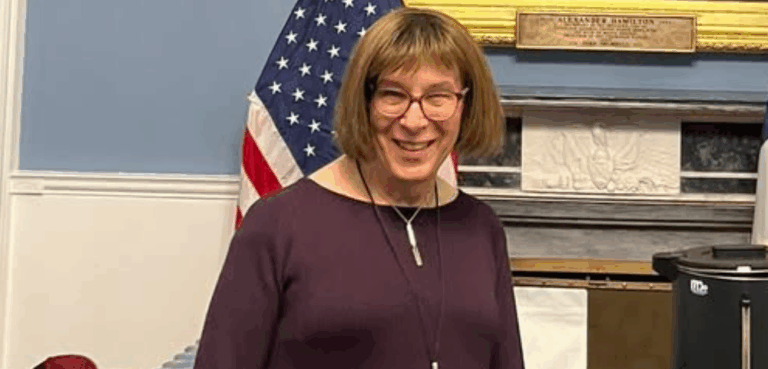
Young trans* people form supportive communities despite major mental health challenges

YOUNG trans* and gender diverse Australians are using activism to forge strong communities and create a better life for themselves in the face of overwhelming mental health challenges, according to groundbreaking new research.
From Blues to Rainbows, a study of trans* and gender-diverse youth by La Trobe University, identified high rates of depression, anxiety and suicidal thoughts linked to experiences of verbal and physical abuse.
Almost half of the 189 young people aged 14–25 who participated had been diagnosed with depression, and 38 per cent had thought about suicide.
Two thirds had experienced verbal abuse, while one fifth had experienced physical abuse — of those, 90 per cent had suicidal thoughts following that physical abuse.
Lead author of the study Dr Elizabeth Smith told the Star Observer that a number of factors could protect these young people, notably the involvement of supportive parents.
“We were surprised by the degree to which parents can lay a protective role for young people,” she said.
“So for example, 60 per cent of young people who told us they did not feel supported by their parents have experienced depression, compared to 30 per cent who had felt supported by their parents.”
Negative experiences with mental health professionals often resulted from young trans* and gender-diverse people feeling as though they had to educate the provider about trans* and gender diverse issues, while the better providers already had that knowledge.
“Young people shop around until they find someone who does have an understanding, who treats them with respect and confidentiality and so forth, and then share that knowledge amongst themselves and each other,” Smith explained.
She explained that for many of the young people surveyed, being involved in activism was incredibly important as a way to make things better for themselves and others going through the same difficult experiences.
“The strength and the courage and the resilience that these young people demonstrated in this research was really quite overwhelming, [so was] their involvement in activism as a way to create a better life for themselves and for other people,” Smith said.
Beyondblue was a partner for the research, and said the organisation would be using the results to shape future work with trans* and gender diverse communities.
“Teachers, parents and kids themselves should learn from this research and support gender diverse and transgender young people, before they reach a point where they experience depression, anxiety or suicidal thoughts,” chief executive Georgie Harman said.
School was another site for both potential abuse and potential support. While the study identified the benefits of supportive teachers and schools, it said a lot of work needed to be done on developing more inclusive sexuality and puberty education.
The study also discussed the labels the young people used for themselves, with one in three not identifying with the gender binary, and half identifying as “transgender”. Almost a third said they “always knew” about their gender identity.
In terms of sexuality, the young people were most likely to identify as queer, with 27 per cent, then pansexual, at 23 per cent.
The least common sexual identities were “homosexual” at two per cent, “gay” at five per cent, or “heterosexual” at five per cent.
While the study set out to look at the experiences of young intersex people as well, the study noted that inadequate questions meant it did not do so successfully, leaving open the possibility of further research.
